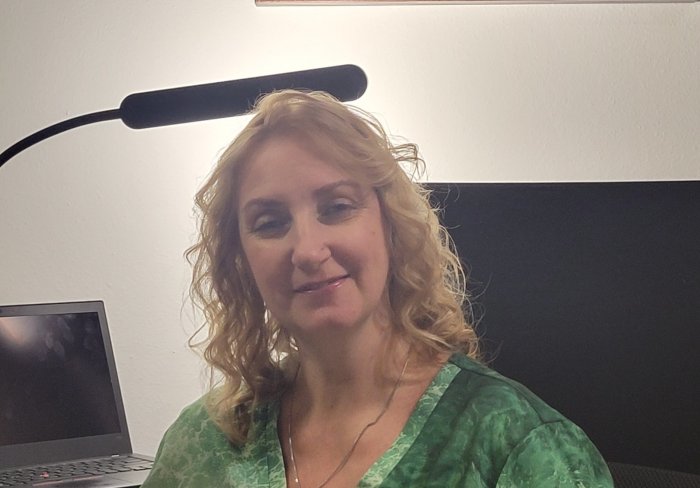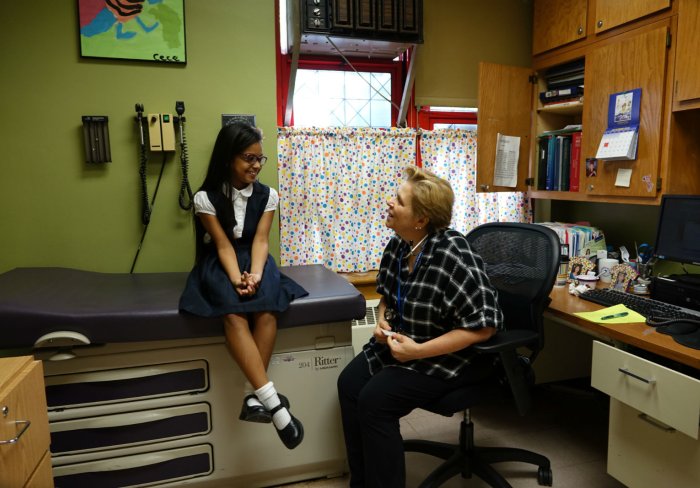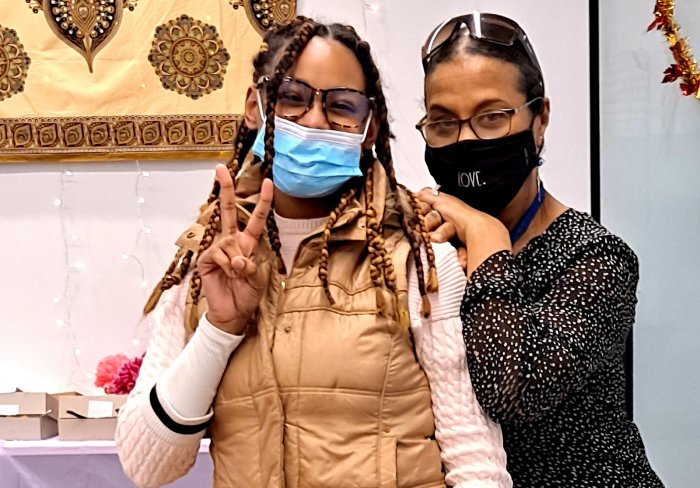Before the coronavirus became an international concern, it came to Carolyn McGeachey-Price’s door. On March 18, the day the U.S. death toll from the disease passed 100, Carolyn’s domestic partner became COVID-19 positive.
Caring for him in those early days, when we knew so little about the disease, helped prepare Carolyn for what was to come in the clinics she helps to supervise. “It was an emergency situation,” she said. “He ended up in the hospital. So when I came back to work, I understood the panic in the public and the sense of urgency with my staff. I knew what was on the way.”
Fortunately, her partner made a full recovery. And her efforts at our Milbank Health Center and Bronx Health Center, where she serves as a pediatric nurse and clinical nurse manager, have been just as successful.
For the past year, nurses like Carolyn have faced the pandemic up close and personally every single day. It has affected them intimately, but it has not stopped them from pursuing the mission that got them into the profession in the first place: providing excellent care to the patients they serve. In this National Nurses Week, we salute them for their outstanding, essential efforts.
“The team as a whole, from the nurses to the leadership to the support staff, got closer,” Carolyn said. “It was an extraordinary time, but through it we learned to trust each other more. We got better at our work, and we got closer with each other.”
When the lockdowns were first implemented, Areatha Brathwaite began driving from her home in southern New Jersey to the Bronx Family Center every day. Public transportation no longer felt safe to her or her patients – youth in foster care. But she continued to make home visits, even when families preferred to meet outside so that they could socially distance.
As a clinical nurse case manager, Areatha oversees 15 to 20 children at a time, meeting with them at least once a month to make sure that their health needs are being met. Transitioning to telemedicine made meetings safer, but it didn’t mean any less work.
“We’ve always had an on-call nurse after hours,” she said. “But despite the fact that there’s an emergency call number for families, everyone prefers to call their assigned nurse. I get calls in the middle of the night and on the weekends. People were just so scared of this disease. For me, it’s not a problem because I’ve been with them so long. I want to know they can come to me for help at any time.”
For Carolyn, the early months were filled with patient visits and logistical problems. First, she had to find PPE for herself and her staff, which was no easy feat during the early days of the pandemic. Then, she had to take over administrative duties when Marion Walters, the medical office manager, came down with the coronavirus.
“I think Carolyn did an exceptional job this year,” Marion said. “I was out with COVID for five weeks. She had to cover me and my own tasks at both of our clinics. She always puts others first, and she showed that even more in the past year.”
In the past several months, as vaccinations have risen and case rates have fallen, nurses have felt the early signs of a return to normalcy. Areatha has been getting photographs from celebrations like graduations and birthday parties, and she notices that more people now feel comfortable gathering together.
“I love to see the pictures because we really have a bond,” she said. “The only thing I don’t like is that I can’t come and get some of the cake they’re always eating!”
Appointments at the clinics have been opening up, too, as parents feel more comfortable bringing their children in for annual wellness visits again. Carolyn has been amazed to see the literal and figurative growth in her kids. She especially loves it when kids pull their masks down to reveal missing teeth.
“The last time I saw them, they were babies,” she said. “And now they’re walking! It’s amazing how much happens in a year in the life of a child. Even in a hard year, they keep growing.”







